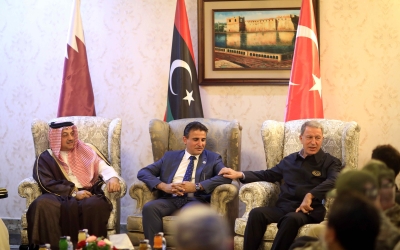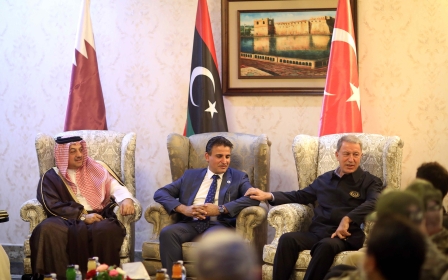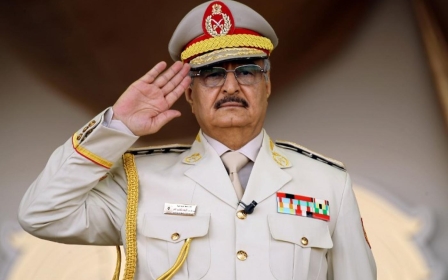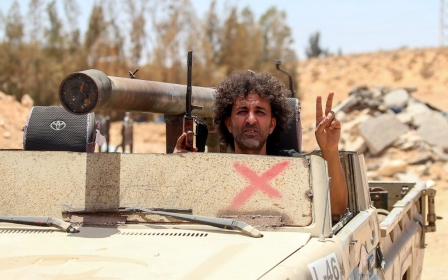Rival Libya governments announce ceasefire and call for elections
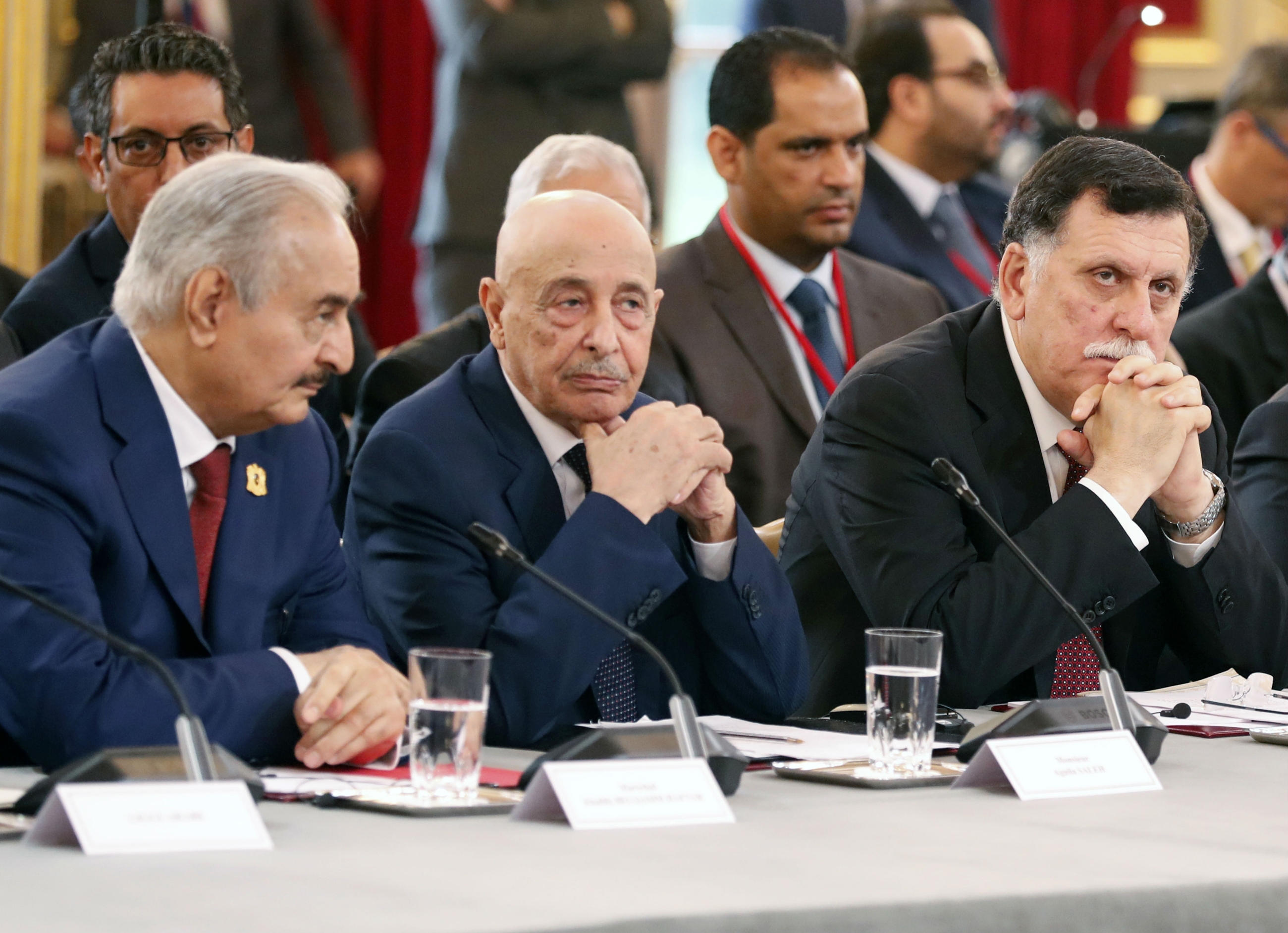
Libya's warring rival governments announced in separate statements on Friday that they would cease all hostilities and organise nationwide elections soon, an understanding swiftly welcomed by the United Nations.
The statements were signed by Fayez al-Sarraj, head of the UN-recognised unity government based in the capital Tripoli, and Aguila Saleh, speaker of the eastern-based parliament backed by military strongman Khalifa Haftar.
In its statement, Sarraj's Government of National Accord (GNA) said it had "issued instructions to all military forces to immediately cease fire and all combat operations in all Libyan territories".
The statement said that the "ceasefire requires the areas of Sirte and al-Jufra to be demilitarized within security arrangements".
There was no immediate comment from Haftar or his Libyan National Army (LNA).
Saleh is seen to have gained influence compared to Haftar since the LNA's retreat from Tripoli.
Saleh also called for further talks of the 5+5 Joint Commission, which previously brought five senior GNA and LNA officials to the negotiations table.
Both sides also called for parliamentary and presidential elections to be held in March.
The truce will make Sirte a temporary seat for a new presidential council, to be guarded by security forces from various regions in the country, said Saleh.
Both parties cited the spread of coronavirus as a reason for backing a ceasefire, Reuters reported.
Sisi response
The UN Support Mission in Libya welcomed both administrations' statements and called for the expulsion of all foreign forces and mercenaries in Libya.
The UN's top official to Libya, Stephanie Williams, called for "all parties to rise to this historic occasion and shoulder their full responsibilities before the Libyan people".
Egyptian President Abdel Fattah el-Sisi also welcomed the declarations.
Sisi praised both ceasefire calls as "an important step on the road to achieving a political settlement".
Egypt is one of several countries, including the United Arab Emirates and Russia, who have supported Haftar's forces.
Oil situation
The GNA on Friday urged a restart of Libyan crude production and exports, under the management of state-owned National Oil Company (NOC), and said that its revenues would be directed into a special account.
Transparency over NOC's income has been a key LNA call, which insists payments have been misused by the Tripoli-based Central Bank to fund foreign mercenaries.
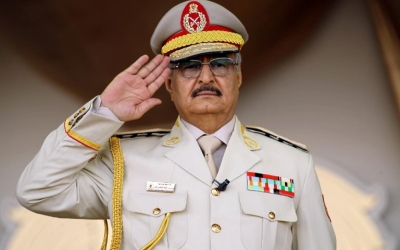
The NOC said on Friday it welcomed the proposals from both sides in the country's conflict.
"NOC reiterates its call for all oil facilities to be freed from military occupation to ensure the security and safety of its workers," the state oil producer said in a statement.
"Once this has been done, NOC should be able to lift force majeure and re-commence oil export operations."
The NOC also said it was "making all possible efforts to provide a ship to empty condensate tanks" in eastern Libya, after authorities there said they would allow the shipment of oil and gas products to ease a power supply crisis.
An oil blockade was imposed by the LNA and its allies in January, reducing Libya's oil production from around 1.2m barrels per day (bpd) to less than 100,000 bpd. The NOC estimates losses at more than $8 bn.
The LNA and allied oil guards said earlier this week that shipments from blockaded ports would be limited to those needed to offload stored products and allow for the production of gas used at power stations.
Turkish military support
Libya was plunged into chaos when a Nato-backed uprising in 2011 toppled longtime leader Muammar Gaddafi, who was later killed.
The country has since been split between rival east- and west-based administrations, each backed by armed groups and foreign governments. The two have been at war virtually since the formation of Sarraj's government in December 2015.
Haftar launched an offensive in April 2019 to try and capture Tripoli.
However, his offensive collapsed in June when forces from the GNA, coupled with Turkish support, won a string of victories, driving Haftar's forces from the outskirts of the capital and other western towns.
'Deceptive calm'
German Foreign Minister Heiko Maas, on a surprise visit to Tripoli on Monday, warned that Libya faced a "deceptive calm" since fighting stalled around the strategic city of Sirte.
The central Mediterranean coastal city - a symbolic site as the hometown of Gaddafi - is the gateway to Libya's eastern oil fields and export terminals, and to the key al-Jufra airbase to the south.
Western powers, fearing that a GNA attack on Sirte would raise the prospect of direct clashes between regional heavyweights Turkey and Egypt, had called for renewed peace efforts.
Egypt, which has threatened direct military intervention, has also sought to join forces with some of the neighbouring country's powerful tribes, to give it a local partner aside from Haftar.
Middle East Eye delivers independent and unrivalled coverage and analysis of the Middle East, North Africa and beyond. To learn more about republishing this content and the associated fees, please fill out this form. More about MEE can be found here.


